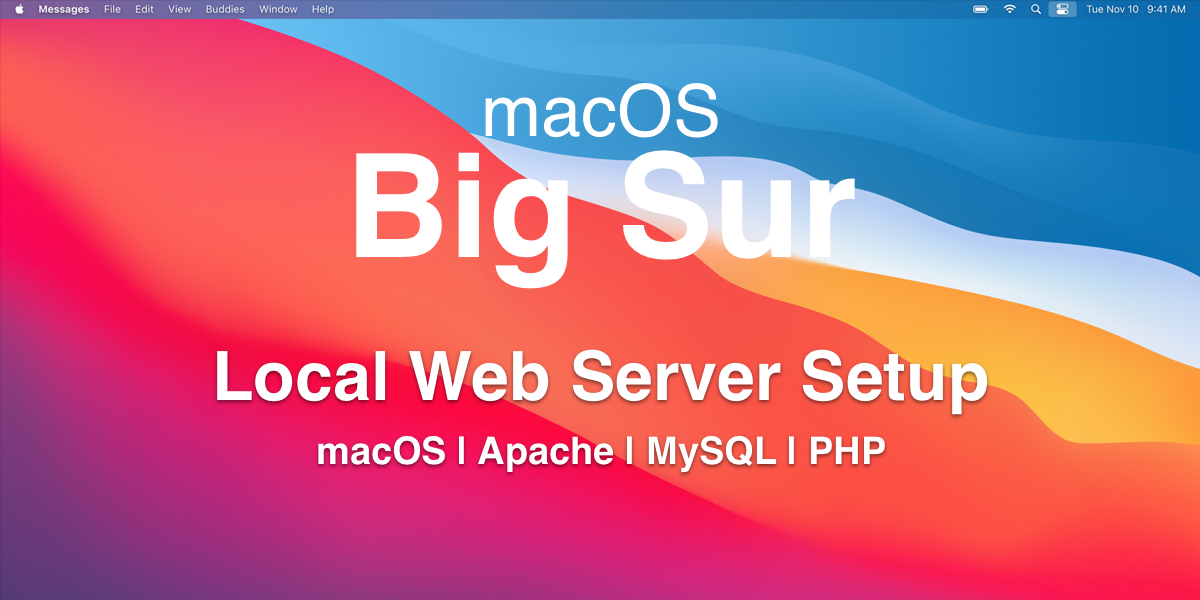

D AP_TYPES_CONFIG_FILE="/private/etc/apache2/mime.types" D DEFAULT_LOCKFILE="/private/var/run/accept.lock" D DEFAULT_PIDLOG="/private/var/run/httpd.pid" Server's Module Magic Number: 20051115:31 In my case though, there was an ErrorLog explicitly specified (second line) and that's where my errors are going. So in some cases the DEFAULT_ERRORLOG might be relative to ServerRoot. There, I found two entries that might be helpful: ServerRoot "/usr/local/opt/httpd"ĮrrorLog "/usr/local/var/log/httpd/error_log" So the "DEFAULT_ERRORLOG" is in logs/error_log - but relative to what?
MAC OS X APACHE LOCATION INSTALL
Where can I find my apache path to install the mods Thanks, MrB edit Specifically, I want to install Ruby integration so I can include < > Ruby tags in.Everybody suggests it is /usr/local/apache, but that doesnt exist. Now I want to install some mods but I cant find the path. D SERVER_CONFIG_FILE="/usr/local/etc/httpd/nf" I can activate an apache webserver in the System Preferences. D AP_TYPES_CONFIG_FILE="/usr/local/etc/httpd/mime.types" D DEFAULT_SCOREBOARD="logs/apache_runtime_status" D DEFAULT_PIDLOG="/usr/local/var/run/httpd/httpd.pid" D SUEXEC_BIN="/usr/local/opt/httpd/bin/suexec" D APR_HAVE_IPV6 (IPv4-mapped addresses enabled)

You'll get something like this (shortened) Server compiled with.

Substituting in the location of your httpd executable. Now run: >/usr/local/opt/httpd/bin/httpd -V That gives you the location of the httpd executable. This gives an output with lines like this: 502 10587 10586 0 11:11AM ? 0:00.00 /usr/local/opt/httpd/bin/httpd -k start Here's the procedure I used to locate my error log: >ps -ef |grep httpd In my case, I'm using Apache (on High Sierrra) installed via Homebrew. Edit host file for your sever name, open /etc/hosts and add this line to itġ0.The answers above work great for the default apache that comes pre-installed on the mac. SSLCertificateKeyFile /etc/apache2/ssl/server.keyĨ. SSLCertificateFile /etc/apache2/ssl/server.crt SSLCipherSuite ALL:!ADH:!EXPORT56:RC4+RSA:+HIGH:+MEDIUM:+LOW:+SSLv2:+EXP:+eNULL Replace the value for ServerName, DocumentRoot and Directory path to yours. Configure vhosts to enable https 443, open /etc/apache2/extra/nf and the below to it.
MAC OS X APACHE LOCATION MAC OS X
For additional commands, e-mail: Previous message View by thread View by date Next message GitHub maven pull request: Mac OS X - way of getting JAVAHOME. SSLCertificateKeyFile "/etc/apache2/ssl/server.key"ħ. GitHub maven pull request: Mac OS X - way of getting JAVAHOME location. SSLCertificateFile "/etc/apache2/ssl/server.crt"
MAC OS X APACHE LOCATION UPDATE
Open /etc/apache2/extra/nf search for lines with SSLCertificateFile and SSLCertificateKeyFile, update them to the below LoadModule ssl_module libexec/apache2/mod_ssl.so If there is but with # sign at the beginning, remove the # sign. Open /etc/apache2/nf, make sure you have these 3 lines in it. Sudo openssl x509 -req -days 99999 -in request.csr -signkey server.key -out server.crtĥ. Create SSL certificate file from the request file. Sudo openssl req -new -key server.key -out request.csrĤ. Enter info or leave blank when asked various questions. Create server key, just press enter when asked for password.ģ.


 0 kommentar(er)
0 kommentar(er)
